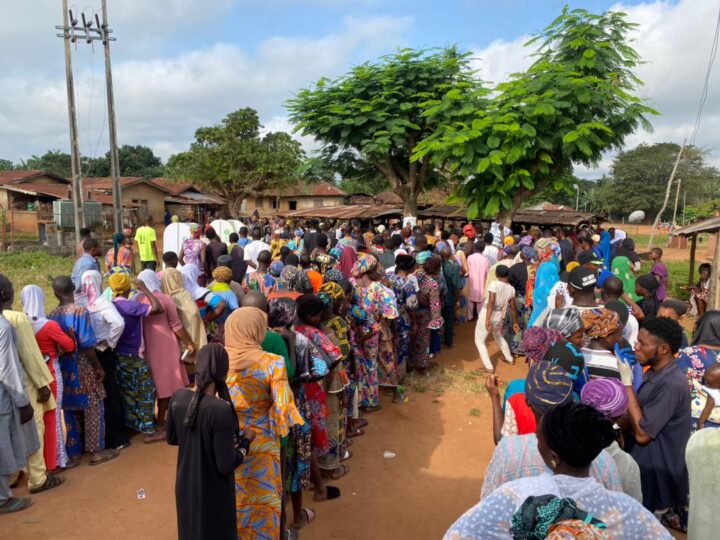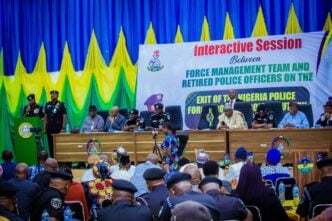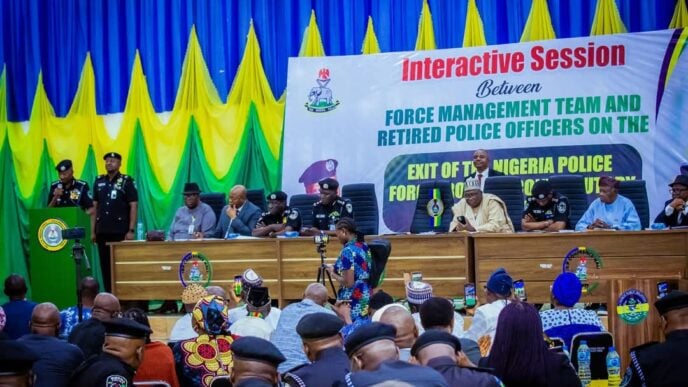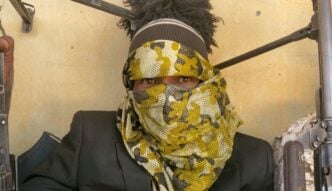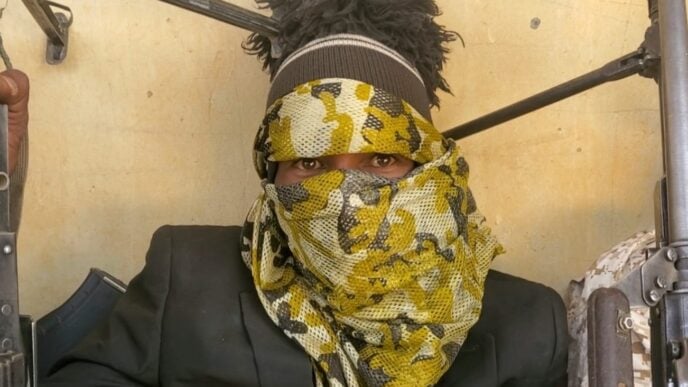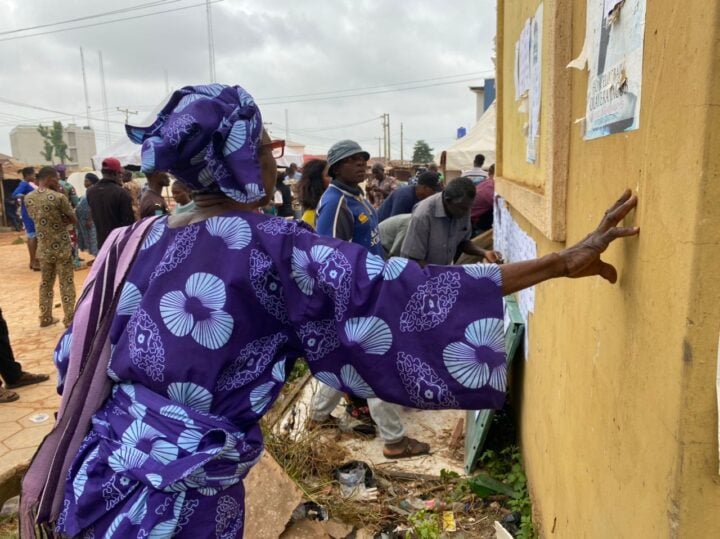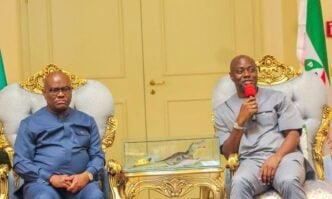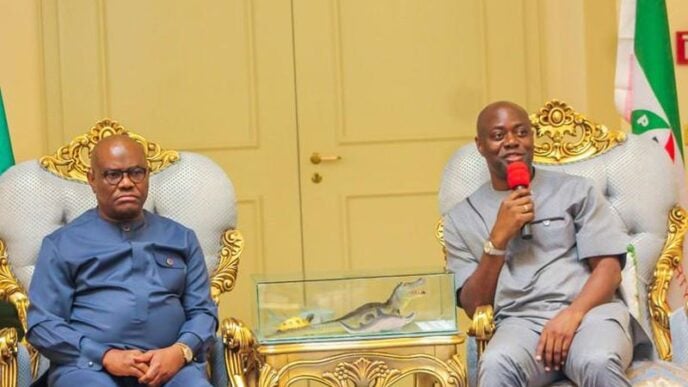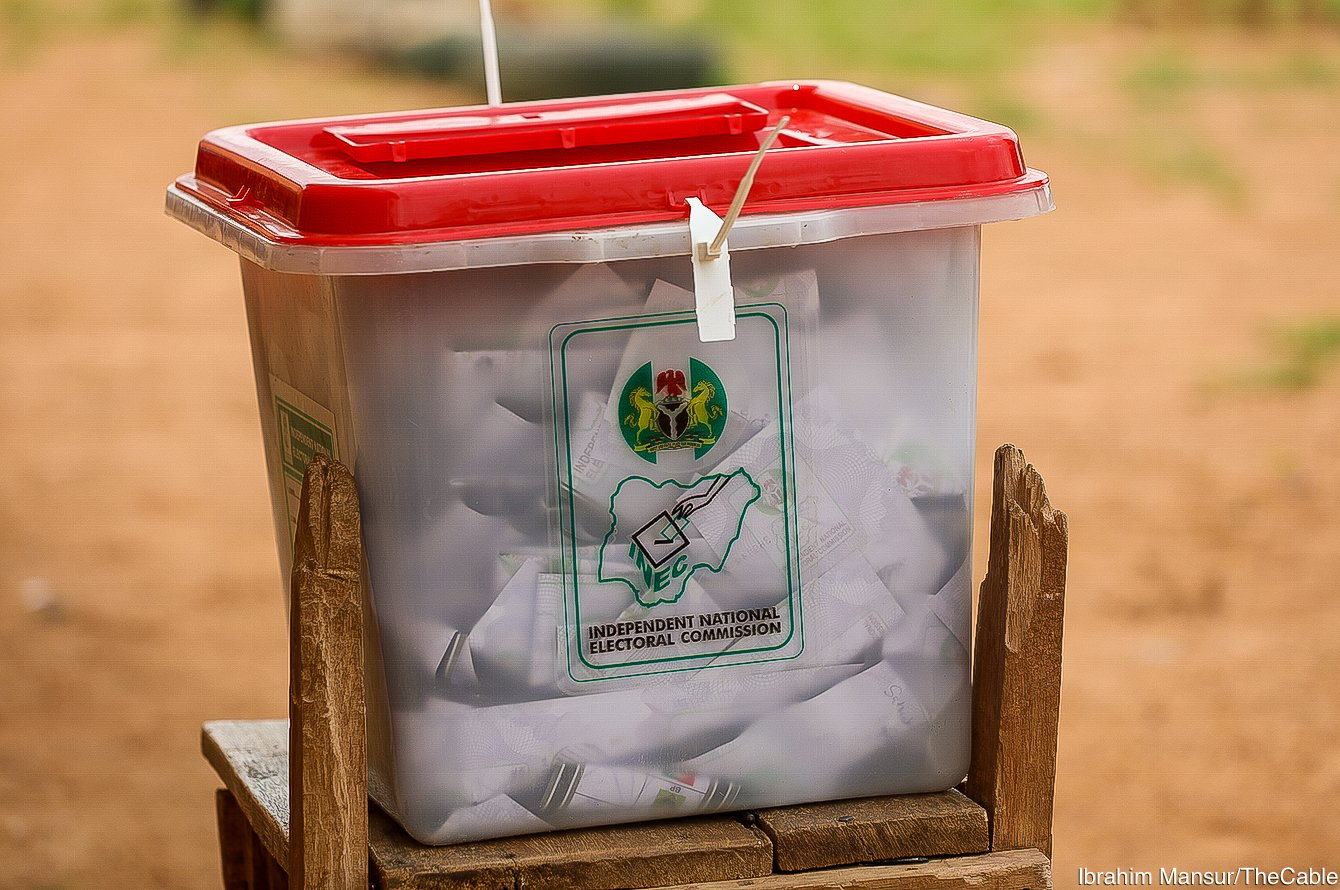BY ABBAS HARUNA IDRIS
In Nigeria’s restless political theatre, resignations rarely come without signals. When Umar Abdullahi Ganduje stepped down as the national chairman of the All Progressives Congress (APC), it was clear that something deeper was unfolding behind the scenes. What seemed like a voluntary exit was, in reality, the climax of months of political pressure, damaged credibility, internal betrayal, and high-stakes manoeuvring ahead of 2027.
His resignation was not merely about personal defeat. It exposed the cracks within the APC, highlighted regional power imbalances, and gave Nigerians a front-row seat to how power, perception, and politics collide in Nigeria’s Fourth Republic.
The Rise: Ganduje’s chairmanship and the currency of loyalty
Advertisement
Ganduje’s rise as APC national chairman in 2023 was a reward for loyalty. When many northern politicians hesitated to throw their weight behind Bola Ahmed Tinubu during the APC presidential primaries, Ganduje was unwavering. That loyalty earned him political currency, but it was borrowed, never earned through consensus or grassroots mobilisation.
His chairmanship was, from the start, a transactional appointment—an IOU cashed in after Tinubu’s victory. But borrowed thrones are fragile. And the very forces that lifted him began to push for his removal as the party’s image came under strain.
Kano rejection: A homeland that lost faith
Advertisement
The cracks in Ganduje’s authority became most evident in Kano, his political stronghold. Once a stronghold of the APC, Kano fell into the hands of the New Nigeria People’s Party (NNPP) during the 2023 elections under Rabiu Musa Kwankwaso’s resurgence. For a sitting national chairman to lose his own state was not just an electoral loss—it was a damning referendum.
Even within the APC in Kano, Ganduje was increasingly isolated. He faced opposition from rival blocs loyal to Senator Ibrahim Shekarau and other northern figures. His grassroots appeal eroded as he became entangled in prolonged factional battles.
And in Nigerian politics, when your base slips, your national relevance is numbered.
Scandals and optics: Why the APC grew uneasy
Advertisement
Few political leaders have survived the type of reputational baggage Ganduje carried into national leadership. The infamous dollar-stuffing video, allegedly showing him accepting kickbacks in bundles of foreign currency, resurfaced more often than party manifestos. Though he denied all wrongdoing, the court of public opinion was not on his side.
His presence as APC chairman became an optical burden. For a ruling party struggling with public trust amid inflation, insecurity, and subsidy removal fallout, keeping a controversial figure in the top party seat was a liability.
The APC, long criticised for selective justice, began to face backlash from both domestic and international observers. Calls for accountability grew louder—even from within its ranks.
Tinubu’s calculated silence: The power of quiet abandonment
Advertisement
President Bola Ahmed Tinubu is not known for impulsive decisions. His silence during Ganduje’s most trying moments was not indifference—it was tactical. It sent a clear signal to power brokers within the APC: Ganduje no longer enjoyed the full support of the commander-in-chief.
It was a classic Tinubu manoeuvre. Rather than publicly disown his political ally, he simply stopped defending him. In Nigerian politics, such silence is more lethal than open confrontation.
Advertisement
By staying silent, Tinubu preserved party unity, shielded himself from scandal, and opened the door to a more strategic replacement, likely one better suited to manage internal fractures and national sentiments heading into the 2027 race.
The north’s unease: A growing regional fracture
Advertisement
Ganduje’s resignation also reopens a long-simmering debate within the APC: Has the north been relegated to the backseat since Tinubu’s victory?
With the presidency in the south-west, northern leaders were already uneasy about their fading influence in the national political calculus. Ganduje, as national chairman, was seen as a token northern presence at the highest level of APC power. His fall, therefore, has been interpreted by some northern power blocs as strategic marginalisation.
Advertisement
On one side, Ganduje’s resignation lies a lesser-discussed but politically significant tension: the alleged rift between him and Vice-President Kashim Shettima. Though largely unspoken in official circles, whispers of a cold war between both men have circulated for months—an undercurrent that many insiders believe contributed to Ganduje’s eventual ouster.
If the APC fails to either return the chairmanship to the north or provide a meaningful replacement that balances regional equity, the party could face a mass revolt similar to the PDP implosion of 2014.
Internal crisis: What does APC stand for now?
Beyond Ganduje, the APC itself faces an existential question: What is its ideology? What does it represent?
Formed in 2013 as a union of political refugees and rival power centres, APC was more of an anti-PDP coalition than a party with a unifying vision. Under Buhari, it gained cohesion through presidential centralisation. But now, the post-Buhari APC is fragmented, incoherent, and rudderless.
Under Ganduje, the APC drifted further into crisis: contested congresses, disputed primaries, weak grassroots mobilisation, and a lack of national vision. His resignation may give the party an opportunity to reset—but only if new leadership emerges with reformist energy and legitimacy across zones.
The legal sword: Will accountability catch up?
Now out of power, Ganduje may soon face the reckoning he avoided for years. Investigations into his alleged corruption cases—especially the dollar bribery video—may be revived. The Kano state government had already hinted at revisiting those files. Without party immunity and national backing, he’s more vulnerable than ever.
This moment could serve as a litmus test for Nigeria’s anti-corruption institutions. Will they pursue real accountability? Or will Ganduje, like many before him, quietly return in another role—possibly appointed by the very administration now distancing from him?
Can he bounce back? The Nigerian talent for political resurrection
If Nigeria has taught us anything, it’s that political death is rarely final. From Diepreye Alamieyeseigha to Orji Uzor Kalu, and even Bola Tinubu himself, the country has seen many phoenix-like returns.
Ganduje may be bruised, but he is not politically dead. He retains considerable political capital among select northern stakeholders. He could re-emerge in a federal role—perhaps as a board chair, envoy, or minister—once the dust settles. But rebuilding his public image will be no small feat in this era of viral accountability and a restless electorate.
The APC’s opportunity or implosion moment
With Ganduje out, the APC now stands at a crossroads. It can either:
Reform: Appoint a competent, scandal-free, and consensus-driven chairman who can unify the party across regions and restore public confidence.
Recycle: Bring in another power broker based on zoning or political IOUs, further alienating the youth, independents, and reform-minded stakeholders.
The party’s survival in 2027 depends largely on this choice. Failure to get it right could lead to the kind of pre-election internal implosion that sank the PDP in 2015.
More than a man, a moment of reckoning
Ganduje’s resignation is not just a change in personnel—it’s a mirror. It reflects the transactional nature of Nigerian politics, the fragility of loyalty, and the cost of ignoring public perception. It also reveals the growing restiveness of a Nigerian electorate tired of recycled leadership and empty promises.
For the APC, this is a chance to recalibrate. For Tinubu, it’s an opportunity to shape a new political legacy. For the North, it’s a moment to demand genuine inclusion. And for Ganduje, it’s a chapter closed—but perhaps not the end of the book.
In the theatre of Nigerian politics, exits are rarely final. But some leave behind lessons that no party can afford to ignore.
Abbas Haruna Idris is a Wikipedia editor, economist and public affairs analyst. He writes on governance, democratic accountability, and the intersection of politics and public perception in Nigeria. He can be contacted via [email protected]
Views expressed by contributors are strictly personal and not of TheCable.

